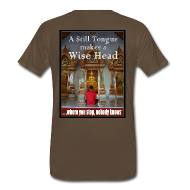
Sitting in a full plane in a window seat, the gentleman near my age in the middle seat leaned over just after I sat down and said, “Do you live in San Francisco?” I said yes and he told me that all his money and documents were stolen in Hawaii, and he is flying back to go to the German consulate to get passport and a ticket home. So, I asked the guy at aisle seat, since he had an Iphone, to please look up the address to it in the city. That guy later bought him a beer since he had no credit card, but then went back to his movie on his computer with earplugs.
I drew out on paper how to get there in detail once I knew the address. I could sense his anxiety and the need to talk to me. He wasn't overly talkative, and respectful. And over the course of the almost two hour flight he told me bits and pieces of how he arrived at this difficult time in life. I said to him I would show him where to go, and get a better map when we arrived, since I am not a rush to get home. I said it is a waste of money to stay in a hotel, since you are short of cash, just shower here at the airport and grab the BART to the city in the morning when they open.

He proceeded to tell me he got divorced from his wife about two years ago, and she got the house, sparing him the half million mortgage debt. Which I pointed out was one good thing to rest your brain on. But this left him with no home, and lost his job as a horticulturist with the market downturn. He told me he even has a PHD, which I could tell amazed him he ended up in this position. He got unemployment, and it ran out this year, and housing and food being so expensive in Kauai he ended up at friend’s houses, and then the street where he his money and passport were stolen. He said, “This all I have after 10 years in Kauai pointing to a bag under the seat.” I shared my story with him, my losses, etc and it seemed to help.

When we arrived at the airport we walked together so I could show him where to go, and while he went outside to smoke, I went downstairs to get an airport and city map. I found him again and we sat down at a table while he had a beer, and went over the directions and how to get to the embassy and get a ticket home to see his sister and get back on his feet. We talked for over an hour, and he asked me, "How long did it take to get back after your losses?" Choosing not to tell him that I really haven't, because that would make him feel less anxious. I told him instead what I think is positive... that it took me to explore new methods of thinking about me, life and lead me to Buddhism. I said most of the hard part is in your mind, how you perceive your trouble and that is where you should start. He expressed his fear he did not want to end up dead so soon, so he was consciously not taking any drugs or drinking too much, so he was willing to go back and start fresh. He pointed out that he tried anti-depressants and did not finish his first fill and was happy he could spend time with his sister he had not seen in ten years. I said that is where you start, what you like that you have done so far ...what is good in your life and expressed the importance of letting go of the past, what is done is done, and work with going forward now. I gave him a piece of smoked salmon I was bringing home and he lit up. He had one more beer, while we continued talking and he told me that after this one he just go lay down in the airport and sleep. When he finished he walked with me outside, and I said thanks first. He said, “No, I should say thanks for all the help, and if I have any trouble tomorrow I will call me you." I could tell he was somewhat more relaxed than when I first met him. Like I told him earlier, nobody is immune to suffering, and seeing him was my reminder, hence why I said Thanks.
























